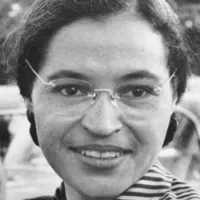Emory University, a private research university in Atlanta, Georgia, was established in 1836 by the Methodist Episcopal Church as Emory College. Named after Bishop John Emory, the university's primary campus is located in Druid Hills, a short distance from downtown Atlanta. It is recognized for its research contributions and academic programs.
1900: Alben Barkley Graduates
In 1900, Alben Barkley graduated from Emory University.
August 16, 1906: Establishment of Wesley Memorial Hospital and Training School for Nurses
On August 16, 1906, the Wesley Memorial Hospital and Training School for Nurses was established, later to be renamed the Nell Hodgson Woodruff School of Nursing, marking a significant step in Emory's healthcare and nursing education initiatives.
1910: Dumas Malone Graduates
In 1910, Dumas Malone graduated from Emory University.
1914: Formation of Intercollegiate Debate Team
In 1914, Emory formed the intercollegiate debate team Barkley Forum.
1914: Establishment of the Candler School of Theology
In 1914, the Candler School of Theology was established at Emory University, furthering the institution's commitment to theological education.
1915: Relocation and Rechartering of Emory College
In 1915, Emory College relocated to Druid Hills and was rechartered as Emory University after accepting a land grant from Asa Griggs Candler, founder of The Coca-Cola Company. This relocation and rechartering marked a pivotal moment in the university's history and expansion.
1916: Establishment of Emory University School of Law
In 1916, Emory University School of Law was established, expanding the university's academic offerings into legal education.
1917: Organization of Emory Unit, Base Hospital 43
In 1917, as the United States entered the First World War, Emory University organized a medical unit composed of faculty and alumni of the medical school. This unit became known as Emory Unit, Base Hospital 43, and was formed in response to the war effort.
1919: Founding of Emory Graduate School
In 1919, Emory's graduate school was founded.
1919: Establishment of The Emory Wheel
The Emory Wheel, Emory University's student-run newspaper, was established in 1919.
1929: Bobby Jones Graduates
In 1929, Bobby Jones graduated from Emory University.
1940: Kiyoshi Tanimoto Graduates from Candler School of Theology
In 1940, Kiyoshi Tanimoto graduated from the Candler School of Theology. He is later known for his role in organizing the Hiroshima Maidens reconstructive surgery program following the atomic bombing and is portrayed in John Hersey's "Hiroshima".
1947: Land Donation for CDC Headquarters
In 1947, Emory University donated 15 acres of land to the United States Department of Health and Human Services for the construction of the CDC headquarters.
1953: Emory Becomes a Coeducational Institution
In 1953, Emory University officially became a coeducational institution, marking a significant shift from its previous all-male status. This decision allowed women to enroll in large numbers and as resident students.
1959: First Sororities Appear on Campus
In 1959, sororities first appeared on Emory University's campus, marking a change in the social landscape of the university.
1961: Start of Military Dictatorship in South Korea
In 1961, the start of the military dictatorship in South Korea began, which lasted until 1987. Laney and Emory faculty openly opposed it.
1962: Emory Embraces Racial Integration
In 1962, amidst the civil rights movement, Emory University embraced the initiative to end racial restrictions. It asked the courts to declare portions of the Georgia statutes unconstitutional. The Supreme Court of Georgia ruled in Emory's favor, and Emory officially became racially integrated.
1965: Newt Gingrich Graduates
In 1965, Newt Gingrich graduated from Emory University.
1967: Marvin S. Arrington Sr. Graduates from Emory University School of Law
In 1967, Marvin S. Arrington Sr. graduated from Emory University School of Law, becoming Emory University's first, full-time African American student to graduate.
1971: Establishment of African-American Studies Program
In 1971, Emory University established one of the nation's first African-American studies programs and the first of its kind in the Southeastern United States, marking a significant step in promoting diversity and academic study in this area.
1975: Oxford Historic District Designation
In 1975, the United States National Register of Historic Places designated Emory University's original campus in Oxford, Georgia, as part of the Oxford Historic District.
1976: Kenneth Cole Graduates
In 1976, Kenneth Cole graduated from Emory University.
November 1979: Woodruff Donation of Coca-Cola Stock
In November 1979, Robert Winship Woodruff and George Waldo Woodruff donated $105 million worth of Coca-Cola stock to Emory University. At the time, this was the largest single gift ever made to any institution of higher education in the United States.
March 30, 1983: Kim Dae-jung's Speech at Emory University
On March 30, 1983, Kim Dae-jung, while in political exile in the United States, delivered a speech on human rights and democracy at Emory University and accepted an honorary Doctor of Laws degree.
1986: Construction of R. Howard Dobbs University Center
In 1986, the R. Howard Dobbs University Center was built from a neofuturistic postmodernist design by local architect John C. Portman Jr.
1987: End of Military Dictatorship in South Korea
In 1987, the end of the military dictatorship in South Korea happened. Emory faculty openly opposed it during the time.
1991: Opening of LGBT Student Center
In 1991, Emory opened the first collegiate LGBT student center in the Southeastern United States, which is the tenth oldest in the nation.
1993: James T. Laney Appointed Ambassador to Korea
In 1993, James T. Laney, president of Emory University, was appointed United States ambassador to Korea.
1995: Election to the Association of American Universities
In 1995, Emory University was elected to the Association of American Universities, signifying its standing as a leading research university.
1996: Hosting the 1996 Summer Olympics
During the 1996 Summer Olympics in Atlanta, Emory University hosted the United States Olympic women's gymnastics team on its Atlanta Campus. The university also housed international officials and journalists and served as a training facility for Olympians.
1997: James T. Laney Concludes Ambassadorship to Korea
In 1997, James T. Laney concluded his ambassadorship to Korea.
1998: Kim Dae-jung Becomes President of South Korea
In 1998, Kim Dae-jung, who previously spoke at Emory University in 1983, became the eighth President of South Korea.
1998: Establishment of the Emory-Tibet Partnership
In 1998, the Emory-Tibet Partnership was established, fostering collaboration between Emory University and Tibetan institutions.
2000: Kim Dae-jung Wins Nobel Peace Prize
In 2000, Kim Dae-jung, who had spoken at Emory University in 1983 and later became President of South Korea, was awarded the Nobel Peace Prize for his successful implementation of the Sunshine Policy.
2000: Data Falsification Begins
In 2000, members of Emory University's Office of Admission and Institutional Research began intentionally misreporting data concerning entering students' standardized test scores and class rankings. This falsification continued until 2012.
2002: Elizabeth Prelogar Graduates
In 2002, Elizabeth Prelogar graduated from Emory University.
2003: Establishment of Emory University Hospital Isolation Unit and Quarantine Station
Following the 2003 SARS outbreak, Emory University Hospital Isolation Unit and Quarantine Station was established by the CDC.
2003: End of Kim Dae-jung's Presidency
In 2003, Kim Dae-jung's presidency of South Korea came to an end, marking the conclusion of his term as the eighth President of South Korea.
2005: Presentation of the President Medal to Rosa Parks
In 2005, Emory University presented the President Medal, one of the highest honors bestowed by the university, to Civil Rights Movement activist Rosa Parks in recognition of her impact on peace and cultural achievement.
2006: Emory Named a "New Ivy"
In 2006, Emory was named as one of the "25 New Ivies" by Newsweek, recognizing its rising academic reputation.
2006: International Association of National Public Health Institutes Chartered
In 2006, the International Association of National Public Health Institutes was chartered with a $20 million, five-year grant through Emory University from the Bill & Melinda Gates Foundation.
2008: Presidential Award for General Community Service
In 2008, Emory University received the Presidential Award for General Community Service, the highest federal recognition for commitment to community service, service-learning, and civic engagement.
2009: Emory Graduate School Named After James T. Laney
In 2009, Emory graduate school, founded in 1919, was named in honor of James T. Laney, recognizing his contributions to the university.
2012: Emory's Libraries Ranked Among the Best
In 2012, The Princeton Review ranked Emory University among the "10 Colleges with the Best Libraries" in the United States, recognizing the quality of its library system.
2012: Internal Investigation and Data Falsification
In 2012, an internal investigation at Emory University revealed that members of the Office of Admission and Institutional Research had deliberately falsified data regarding students' standardized test scores and class rankings between 2000 and 2012. Following the investigation, those responsible resigned or were terminated, and the university issued a public apology and implemented corrective actions.
2013: Corrective Actions Taken After Data Falsification
In 2013, Emory University continued to take corrective actions to prevent future inaccuracies in data collection and reporting. This included the employment of independent data advisers to ensure the accuracy and integrity of the university's data management processes, following the exposure of data falsification in 2012.
2013: Rita Dove Keynote Address at Emory Commencement
In 2013, Rita Dove gave the keynote address at Emory's Commencement.
2014: Goizueta BBA Program Ranked Ninth
In 2014, Bloomberg Businessweek ranked Goizueta Business School's BBA Program ninth in the nation.
2014: Treatment of Ebola Evacuees
In 2014, Emory University successfully treated medical evacuees during the ebola outbreak.
2014: Emory Law Named Among Best Law Schools
In 2014, The Princeton Review named Emory University School of Law as one of the best 169 law schools in the U.S.
2014: John Lewis Delivers Commencement Address
In 2014, at Emory's 169th Commencement, John Lewis, a leader of the civil rights movement, delivered the keynote address and received an honorary doctor of laws degree.
2014: Role in Ending Ebola Virus Cases
In 2014, the isolation and treatment facilities at Emory University played a crucial role in ending the ebola virus cases in the United States.
2015: Establishment of John Lewis Chair in Civil Rights and Social Justice
In 2015, Emory University School of Law received a $1.5 million donation to help establish a John Lewis Chair in Civil Rights and Social Justice, furthering the study and promotion of civil rights.
2015: Grant to Study Infectious Disease Transmission and Agricultural Practices
In 2015, Emory University and the University of South Florida received a $2.5 million grant over five years from the John E. Fogarty International Center to study links between infectious disease transmission and agricultural practices.
2015: Wounded Warrior Project Grant for Veteran Care
In 2015, Emory University received a $15 million grant from the Wounded Warrior Project to establish the "Warrior Care Network" and develop innovative approaches to treat veterans with post-traumatic stress disorder (PTSD) and traumatic brain injury (TBI).
2015: Multiple Research Grants Received
In 2015, Emory University received several grants, including selection for the Tuberculosis Research Units (TBRU) program, a grant for research on immune responses to Varicella zoster virus and pneumococcal vaccination, grants for research in Fragile X syndrome, blood vessel function, influenza viruses, maternal stress, and cancer imaging "big data", and a grant to study dengue virus infection in India.
2015: Center for Control of Chronic Conditions Established in New Delhi
In 2015, Emory University, along with the London School of Hygiene & Tropical Medicine, the Public Health Foundation of India, and the All India Institute of Medical Sciences, established the Center for Control of Chronic Conditions in New Delhi, India, to improve the prevention and care of various diseases and injuries.
2015: Grants Awarded for Research and Program Development
In 2015, Emory and Georgia Tech received grants for a National Exposure Assessment Laboratory researching the impact of environmental chemicals on children's health, new degree programs in healthcare robotics, expansion of the Atlanta Cystic Fibrosis Research and Development Program, and acceleration of promising technologies with commercialization potential.
2015: Emory Joins CDC's Prevention Epicenters Program
In 2015, Emory was made a member of the CDC's Prevention Epicenters Program, a research program focused on infection control and prevention.
2015: Expansion and Renovation of Sanford S. Atwood Chemistry Center
In 2015, a $52 million expansion and renovation project of the Sanford S. Atwood Chemistry Center was completed. The completion of the complex was accompanied by a $1.2 million grant from the Howard Hughes Medical Institute to advance and modernize the university's chemistry curriculum.
2015: Tree Campus USA School
In 2015, the Arbor Day Foundation named Emory a Tree Campus USA school.
2015: Emory and CDC Lead Partners for CHAMPS Network
In 2015, the Emory Global Health Institute and CDC became lead partners for the newly created, $75 million Bill & Melinda Gates Foundation-funded Child Health and Mortality Prevention Surveillance Network (CHAMPS).
2015: Named Lead Coordinating Center for NETEC
In 2015, the United States Department of Health and Human Services named Emory University the lead coordinating center for the National Ebola Training and Education Center (NETEC) and also received grants for preventing infectious diseases and developing therapeutics and vaccines for Ebola virus.
2016: University Intends to Petition for Annexation into the City of Atlanta
In 2016, Emory University stated that it intended to petition to be annexed into the City of Atlanta.
February 2017: Demolition Announced for R. Howard Dobbs University Center
In February 2017, Emory announced that its R. Howard Dobbs University Center would be demolished and replaced with a new Campus Life Center.
2017: Formal Submission of Petition for Annexation
In 2017, the university leadership formally submitted its petition to be annexed into the City of Atlanta.
January 1, 2018: Annexation of Emory's Campus into the City of Atlanta
On January 1, 2018, Emory's campus was annexed into the City of Atlanta, marking its largest annexation within a period of 65 years.
May 2019: Opening of the Emory Student Center
In May 2019, the Emory Student Center (ESC) opened, featuring a dining hall, study spaces, a game room, a multipurpose space, coffee shop, and food emporium. It is the first building on Emory's campus to receive a LEED platinum rating.
2019: School of Medicine Ranking
In 2019, Times Higher Education World University Rankings placed the School of Medicine at #32 in the world for Clinical/Pre-clinical and Health.
August 2020: Gregory L. Fenves Becomes Emory University's 21st President
In August 2020, Gregory L. Fenves, formerly the president of the University of Texas at Austin, became Emory University's 21st president, assuming leadership of the institution.
2021: Emory Receives External Funding
In 2021, Emory University received $894.7 million from external funding agencies and is classified among "R1: Doctoral Universities – Very high research activity".
2021: Federal Funding Awarded to Emory University
In 2021, the United States Department of Health and Human Services's National Institutes of Health awarded Emory University nearly $600 million.
2022: Emory University Admission Rate
In 2022, Emory University received 33,517 applications and had a 9% regular decision admission rate and a 10.6% overall admission rate. These numbers highlight the competitive nature of admissions to the university.
2022: Times Higher Education World University Rankings
In 2022, Times Higher Education World University Rankings ranked Emory 20th in the United States and 82nd among global universities.
2023: Opening of Health Sciences Research Building
In 2023, Emory celebrated the opening of Georgia's largest health sciences research building. The eight-story, 350,000-square-foot building houses more than 1,000 researchers, including 130 principal investigators.
2023: Launch of Global University Network
In 2023, Emory launched a global university network consisting of University of Bonn, Hebrew University of Jerusalem, University of St Andrews, and Waseda University to deepen partnership in education, research, leadership and innovation.
2023: Goizueta MBA Program Rankings
In 2023, Goizueta Business School's MBA program was ranked 17th in the nation by U.S. News & World Report and 16th in the nation by Bloomberg Businessweek. Additionally, the Financial Times ranked the MBA program 36th worldwide.
2023: QS University Rankings
In 2023, QS University Rankings listed Emory as 155th among global universities, indicating its position in global higher education.
2023: School of Medicine Ranked 23rd in the nation
In 2023, The Emory University School of Medicine is ranked 23rd in the nation from U.S. News & World Report's rankings and also ranked 14th for Radiology, 16th for Surgery, #14 for Obstetrics and Gynecology, and 15th for Internal Medicine.
2023: U.S. News & World Report Ranking of Emory Law
In 2023, the Emory University School of Law is ranked 35th in the nation according to U.S. News & World Report's 2023-2024 rankings.
2023: Nursing School Rankings
In 2023, the Nell Hodgson Woodruff School of Nursing was ranked 1st in the nation for MSN programs and 3rd for BSN programs, according to U.S. News & World Report. Additionally, QS University Rankings listed the school as the 25th top nursing school globally.
2023: Class of 2023 SAT and ACT Scores
In 2023, the median SAT score of the enrolling class at Emory University was 1500 and the median ACT score was 34, reflecting the university's highly selective admission process.
April 25, 2024: Pro-Palestinian Protest and Arrests at Emory
On April 25, 2024, during a pro-Palestinian protest at Emory, philosophy chair Noëlle McAfee and economics professor Caroline Fohlin were detained and arrested by police after objecting to the police presence. Caroline Fohlin was later charged with battery, following her battering by police. The incident sparked controversy and debate on campus.
2024: U.S. News & World Report Ranking
In 2024, Emory University is ranked 24th among national universities in the United States by U.S. News & World Report.
2024: Emory Included in Forbes' "New Ivies" List
In 2024, Forbes included Emory in its list of 20 "New Ivies", highlighting the university's continued academic excellence.
2024: School of Medicine Ranked 23rd in the nation
In 2024, The Emory University School of Medicine is ranked 23rd in the nation from U.S. News & World Report's rankings and also ranked 14th for Radiology, 16th for Surgery, #14 for Obstetrics and Gynecology, and 15th for Internal Medicine.
2024: U.S. News & World Report Ranking of Emory Law
In 2024, the Emory University School of Law is ranked 35th in the nation according to U.S. News & World Report's 2023-2024 rankings.
2024: Nursing School Rankings
In 2024, the Nell Hodgson Woodruff School of Nursing was ranked 1st in the nation for MSN programs and 3rd for BSN programs, according to U.S. News & World Report.
2024: Rollins School of Public Health Ranking
In 2024, the Rollins School of Public Health was ranked 3rd in the nation by U.S. News & World Report.
2024: Biomedical Engineering Ranking
In 2024, the Wallace H. Coulter Department of Biomedical Engineering, a collaboration between Emory University and the Georgia Institute of Technology, was ranked 1st in the nation by U.S. News & World Report.
2024: Fall 2024 Enrollment Statistics
In Fall 2024, the university had a total enrollment of 16,142 students, with 60.2% identifying as female and 39.8% as male.
August 8, 2025: Active Shooter Incident Near Emory and CDC
On August 8, 2025, an active shooter opened fire near the Centers for Disease Control and Prevention (CDC) headquarters and Emory University's Atlanta campus. The suspect was found dead in a CVS Pharmacy from a possible self-inflicted gunshot wound. Police officer David Rose was critically injured and later died in the hospital. Another person was injured in the shooting. A shelter-in-place order was put in place on the Emory University campus and later lifted.
2025: U.S. News & World Report Ranking
In 2025, Emory University is ranked 24th among national universities in the United States by U.S. News & World Report.
2025: Emory Included in Forbes' "New Ivies" List
In 2025, Forbes included Emory in its list of 20 "New Ivies", highlighting the university's continued academic excellence.
Mentioned in this timeline

Cher an American singer actress and television personality is celebrated...

Rosa Parks an American civil rights activist is renowned for...
Japan is an East Asian island country located in the...
Korea is a peninsular region in East Asia comprised of...
Florida a state in the Southeastern United States is largely...
North Korea officially the Democratic People's Republic of Korea DPRK...
Trending

27 minutes ago Jon Hamm Discovers Viral Dancing Meme; Reacts to Meme-Worthy Status at 54.

27 minutes ago Georgia: Missing child found safe after Amber Alert issued in Barrow County.

1 hour ago Selena Gomez Defends Benny Blanco Amid Dirty Feet Frenzy and Divorce Comments.

1 hour ago Blackpink Announces New Album 'DEADLINE' and Teases New Era.

1 hour ago Christian Bale transforms for 'The Bride,' calls character 'old-fashioned,' praises Gyllenhaal's script.
1 hour ago Jaden McDaniels' rise with Timberwolves foreseen by Crawford; joins Leonard's exclusive group.
Popular

Jesse Jackson is an American civil rights activist politician and...

Susan Rice is an American diplomat and public official prominent...

Barack Obama the th U S President - was the...

XXXTentacion born Jahseh Dwayne Ricardo Onfroy was a controversial yet...

Michael Joseph Jackson the King of Pop was a highly...

Kashyap Pramod Patel is an American lawyer who became the...